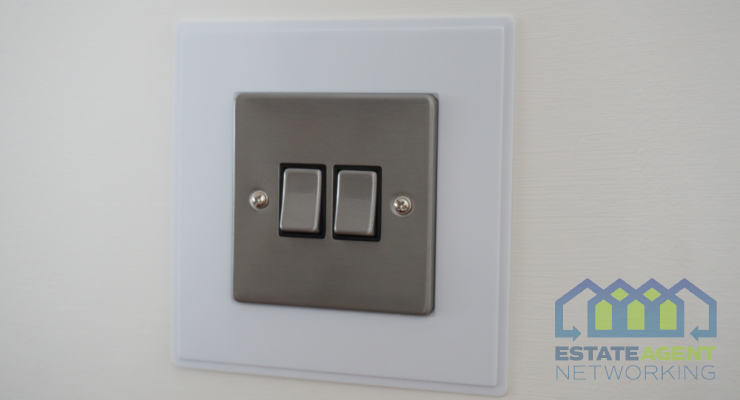Landlord EICRs Compliance in 2026: EICR Rules, Costs & Risks — Interview with Ethem from Efficient Home Energy
With thousands of landlords approaching their next round of electrical safety renewals, 2026 is shaping up to be a crucial year for safety compliance. In this exclusive interview, Ethem, an electrical safety expert from Efficient Home Energy, breaks down the risks, the regulations and the practical steps landlords and letting agents must take to stay compliant and protect their tenants.
Why Electrical Safety Matters in 2026
Ethem, electrical safety is often overshadowed by tenancy issues and rental income. Why should landlords focus on it?
Ethem (Efficient Home Energy): Electrical safety is not something you can afford to ignore. Faulty installations or outdated wiring put tenants at significant risk. This isn’t just compliance for the sake of paperwork, it’s genuinely about preventing fires, protecting assets and avoiding legal and financial repercussions.
How EICRs Reduce the Risk of Electrocution and Electrical Fires
Ethem, how do EICRs actually help reduce risks in rental properties?
Ethem EICRs play a crucial role in identifying issues that can lead to electrical fires or electrocution. When we carry out an inspection, we’re looking for problems that may not be visible to a landlord or tenant but could pose serious risks behind the scenes. This includes checking for damaged or deteriorated wiring, loose connections, overloaded circuits, faulty or outdated consumer units, and missing or inadequate earthing and bonding. We also assess any DIY electrical work that may have been installed incorrectly. Together, these hidden faults can create significant hazards, which is why a thorough, professional EICR is so important for keeping a property safe.
All of these can cause electric shocks or start a fire if left unaddressed.
An up-to-date EICR gives landlords a clear picture of the condition of their electrical installation and highlights any C1 (danger present), C2 (potentially dangerous), or FI (further investigation needed) issues.
By resolving these issues early, landlords dramatically reduce the risk of electrical fires, electrocution incidents, power failures, damage to appliances, and costly emergency callouts. Addressing faults before they escalate not only keeps tenants safe but also protects the property from avoidable disruptions and expensive repairs.
EICR Legislation: What Landlords Should Do
What exactly is required from landlords under current electrical safety regulations?
Ethem: Every rental property must undergo an Electrical Installation Condition Report (EICR) at least every five years. Landlords are required to provide the EICR to new tenants, make it available to the local authority if requested and complete any remedial work highlighted in the report within the legally required timeframe. Failing to meet these obligations can lead to significant fines, compliance issues and potential complications with insurance.
How Electrical Compliance Impacts Letting Agents
What does this mean for letting agents?
Ethem: Agents are often the link between landlord and compliance. Staying ahead of certification improves tenant trust, ensures smoother tenancy transitions, and protects professional credibility. Agents who prioritise safety consistently outperform those who react last-minute.
EICR Costs: What to Expect in 2026
Can you walk us through typical costs for an EICR?
Ethem: Prices for an EICR vary depending on the type and condition of the property. A typical 1-bed flat usually costs between £100 and £150, while most 2–3 bedroom houses fall in the £150 to £250 range. Larger properties or older homes, where the electrical system may be more complex or dated, can cost anywhere from £250 to £450 or more. Small commercial units often range between £300 and £600. If any issues are identified during the inspection, remedial work is quoted separately and older homes tend to have a higher likelihood of requiring upgrades due to wear, outdated wiring, or previous DIY alterations.
Staying Ahead: Making Certification Easier
With renewals increasing, how can landlords avoid delays?
Ethem: Planning early is the best approach. Demand for inspections is steadily increasing, and leaving things until the last minute often leads to avoidable delays and bottlenecks. At Efficient Home Energy, we aim to make the process as straightforward as possible by offering next-day inspections in most areas, fast report turnaround, and streamlined management options designed especially for landlords and agents handling multiple properties.
Practical Steps for Landlords & Letting Agents
What would be your top recommendations for 2026?
Ethem:
It’s important for landlords and agents to stay organised when it comes to electrical safety. Start by checking the expiry dates of all existing EICRs and aim to book inspections well in advance, especially during busy periods. Keeping reports stored digitally ensures nothing gets misplaced, while setting aside a budget for remedial work and particularly in older rental properties as it helps avoid unexpected costs. Above all, electrical safety should be treated as a core element of property management rather than something handled at the last minute.
Electrical safety isn’t just a legal requirement. It reduces the risk of fire incidents and electrocution. As thousands of landlords approach their next EICR renewal in 2026, taking action now will help prevent risk, avoid penalties, and keep properties safe. With expert guidance from professionals like Ethem, compliance becomes straightforward and stress-free.









